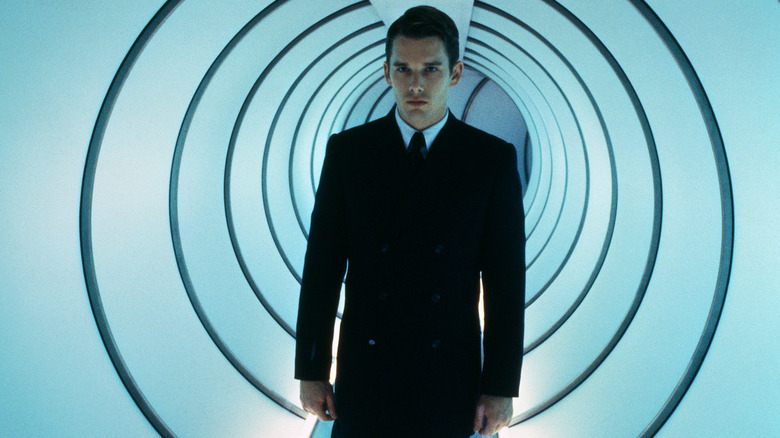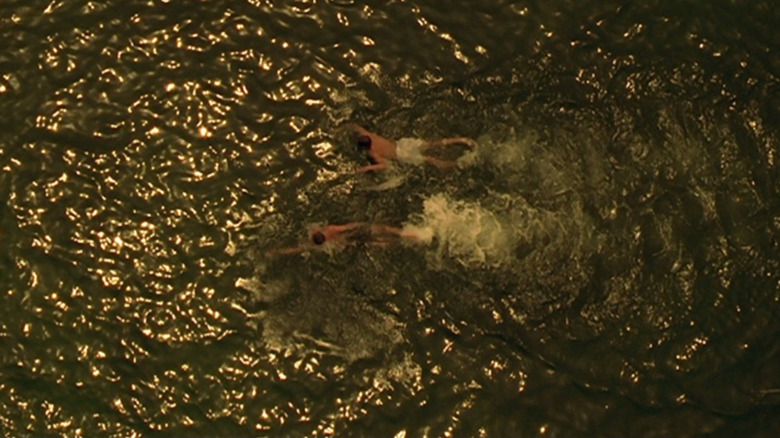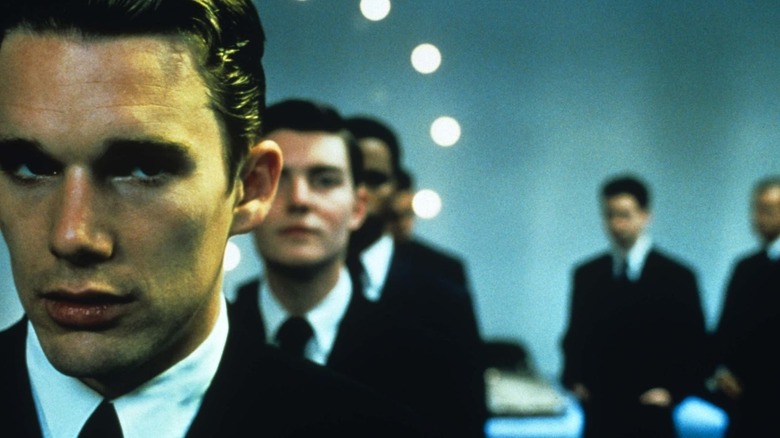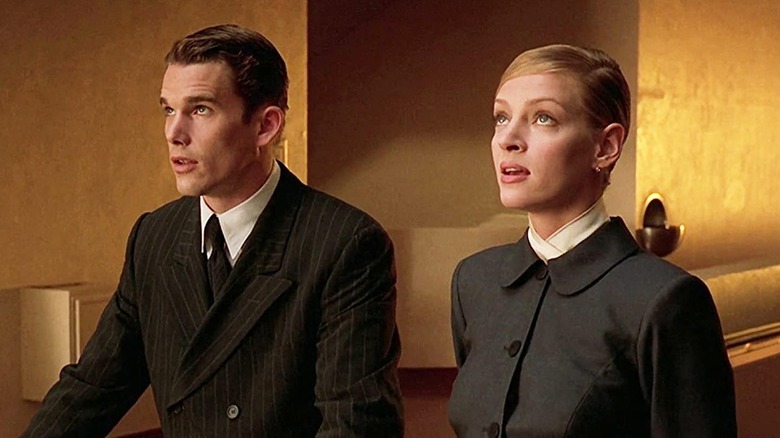
While Andrew Niccol's 1997 dystopian sci-fi film "Gattaca" was not an enormous earner for its studio (it grossed a mere $12 million on a modest $4 million budget), it did manage to find its way deep into the popular consciousness as a salient commentary on where the world was going. A 2011 study by NASA declared "Gattaca" to be one of the most likely sci-fi futures predicted by movies (that same study said Roland Emmerich's "2012" was the most absurd).
"Gattaca" takes place in a near-future where the genetic modification of unborn fetuses is commonplace; wealthy parents-to-be can select what sort of genetic talents and qualities their children will have, cure them of congenital diseases, etc. Trojan Horsed into the now-common eugenics program is a novel and insidious form of institutional discrimination, wherein the government keeps track of the genetically enhanced "Valids" and the naturally born "in-Valids." In order to attain certain positions in society -- CEOs and the like -- one must be a Valid. Genetic checks are performed frequently, and human cells can be salvaged as evidence; threatening when you realize that humans shed five billion skin cells every 24 hours. The story is about a young in-Valid man (Ethan Hawke) who attempts to "pass" as a Valid.
In June of 2020, "Gattaca" producer Stacey Sher reminisced on the making of "Gattaca" in The Hollywood Reporter, and how it -- however slick it looked -- was always on the outer edges of its limited budget. Sher recalls sharply one particular scene that involved submerging a forklift.
The Underwater Forklift

The scene in question featured Hawke's character challenging a Valid friend of his, played by Loren Dean, to a swimming competition. Who can swim the furthest out to sea? Dean, knowing he is genetically superior, is convinced he will win. After all, he knows he has greater stamina. Hawke, however, ends up swimming further out regardless. His secret was that he knowingly didn't save energy for the swim back to shore. The scene takes place in the ocean but was shot in a conventional swimming pool. Waves were required. Says Sher:
"I always think about this when people talk about the glamor of producing. We couldn't afford a wave maker or a tank when we were shooting that final swim; the movie wasn't made for very much money for a studio film. So, somebody told us that if we put a forklift in an Olympic-sized swimming pool, it would make waves that would match the stuff that we shot outside. We needed the close-work for Ethan and Loren's conversation before Loren swam off in the 'I didn't save anything for the way back' scene."
How does one make ocean-like waves in an Olympic size swimming pool? There are many solutions, including operating a forklift under the water. Fun fact: Did you know that forklifts couldn't operate underwater? Sher, it turns out, learned that the hard way:
"So, we put the forklift in; we're in the Olympic-sized pool, and it just totally does not work. And at a certain point, me and every other person on set were lying on our stomachs with kickboards, making waves. So, that's the sort of 'no job too big or too small' philosophy of producing."
The hands-on approach did the job. This must be the glamor Sher was referring to.
Cult Appeal

The Hollywood Reporter was savvy enough to ask Sher about "Gattaca's" status as a "cult" movie or at the very least a movie that didn't find its audience until a while after its theatrical release. Sher noted that audiences didn't seem to quite understand what the film was all about upon its release in 1997, and only recognized its chilling predictions years later. It wasn't until the world's most famous critic venerated "Gattaca" that Sher grasped its growing reputation.
"Honestly, I loved 'Gattaca,' but people didn't really understand the film or what we were after back then. I will say that we did get an award from the late Roger Ebert. He used to have a thing called Roger Ebert's Overlooked Film Festival, and we got a bronze cast of a thumbs-up many years later. There are certain films that we made that were ahead of their time, and I think that it's great that people are discovering them. There's a joke that I think was attributed to Brian Eno about the Velvet Underground: 'The first Velvet Underground record sold only 30,000 copies, yet everyone who bought one started a band!' And I think 'Gattaca' was a little bit like that."
Perhaps a bit off-topic, but that famous claim from Brian Eno, incidentally, was investigated by Billboard. When it comes to investigating "Gattaca," however, one can see its gleaming, steely production design in any number of modern sci-fi films, something Sher was able to correctly point out.
The Prescience Of Gattaca

One only needs to look at a few choice stills from "Gattaca" to see the sci-fi films that came after. A clean, spare future, full of sterile white lights and shiny metal surfaces became the norm in sci-fi at around this time, perhaps inspired by what the film's production designer, Jan Roelfs, invented. "Gattaca" also had the good fortune to be largely correct in many of its predictions. Sher recalls the 1996 cloning of Dolly the sheep and the as-yet unmapped human genomes that would come to underpin what "Gattaca" was all about. "So, it went from being sort of true science-fiction to kind of science-fact or social science-fiction," she said.
As science in genetics has progressed, "Gattaca" has only become more relevant over the years. It's a rare film that's 25 years old but hasn't aged a day. "Gattaca" is currently available to stream on Netflix, and can be rented from various other online sources.
Read this next: The 15 Worst Sci-Fi Movies Of The 21st Century (So Far)
The post Gattaca's Tight Budget Meant They Had To Get Creative appeared first on /Film.
0 Commentaires